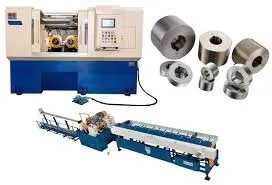
-
 Afrikaans
Afrikaans -
 Albanian
Albanian -
 Amharic
Amharic -
 Arabic
Arabic -
 Armenian
Armenian -
 Azerbaijani
Azerbaijani -
 Basque
Basque -
 Belarusian
Belarusian -
 Bengali
Bengali -
 Bosnian
Bosnian -
 Bulgarian
Bulgarian -
 Catalan
Catalan -
 Cebuano
Cebuano -
 Corsican
Corsican -
 Croatian
Croatian -
 Czech
Czech -
 Danish
Danish -
 Dutch
Dutch -
 English
English -
 Esperanto
Esperanto -
 Estonian
Estonian -
 Finnish
Finnish -
 French
French -
 Frisian
Frisian -
 Galician
Galician -
 Georgian
Georgian -
 German
German -
 Greek
Greek -
 Gujarati
Gujarati -
 Haitian Creole
Haitian Creole -
 hausa
hausa -
 hawaiian
hawaiian -
 Hebrew
Hebrew -
 Hindi
Hindi -
 Miao
Miao -
 Hungarian
Hungarian -
 Icelandic
Icelandic -
 igbo
igbo -
 Indonesian
Indonesian -
 irish
irish -
 Italian
Italian -
 Japanese
Japanese -
 Javanese
Javanese -
 Kannada
Kannada -
 kazakh
kazakh -
 Khmer
Khmer -
 Rwandese
Rwandese -
 Korean
Korean -
 Kurdish
Kurdish -
 Kyrgyz
Kyrgyz -
 Lao
Lao -
 Latin
Latin -
 Latvian
Latvian -
 Lithuanian
Lithuanian -
 Luxembourgish
Luxembourgish -
 Macedonian
Macedonian -
 Malgashi
Malgashi -
 Malay
Malay -
 Malayalam
Malayalam -
 Maltese
Maltese -
 Maori
Maori -
 Marathi
Marathi -
 Mongolian
Mongolian -
 Myanmar
Myanmar -
 Nepali
Nepali -
 Norwegian
Norwegian -
 Norwegian
Norwegian -
 Occitan
Occitan -
 Pashto
Pashto -
 Persian
Persian -
 Polish
Polish -
 Portuguese
Portuguese -
 Punjabi
Punjabi -
 Romanian
Romanian -
 Russian
Russian -
 Samoan
Samoan -
 Scottish Gaelic
Scottish Gaelic -
 Serbian
Serbian -
 Sesotho
Sesotho -
 Shona
Shona -
 Sindhi
Sindhi -
 Sinhala
Sinhala -
 Slovak
Slovak -
 Slovenian
Slovenian -
 Somali
Somali -
 Spanish
Spanish -
 Sundanese
Sundanese -
 Swahili
Swahili -
 Swedish
Swedish -
 Tagalog
Tagalog -
 Tajik
Tajik -
 Tamil
Tamil -
 Tatar
Tatar -
 Telugu
Telugu -
 Thai
Thai -
 Turkish
Turkish -
 Turkmen
Turkmen -
 Ukrainian
Ukrainian -
 Urdu
Urdu -
 Uighur
Uighur -
 Uzbek
Uzbek -
 Vietnamese
Vietnamese -
 Welsh
Welsh -
 Bantu
Bantu -
 Yiddish
Yiddish -
 Yoruba
Yoruba -
 Zulu
Zulu
custom types of thread rolling
Custom Types of Thread Rolling An Overview
Thread rolling is a highly efficient and effective method of creating threads on cylindrical parts. This cold working process not only enhances the mechanical properties of the materials but also ensures high precision and improved surface finish. While standard thread rolling techniques are popular, there is an increasing demand for custom types of thread rolling tailored to specific applications and industries. In this article, we will explore various custom types of thread rolling, their applications, and the benefits they bring.
The Basics of Thread Rolling
Thread rolling is a deforming process where a workpiece rotates between two or more dies, causing material to flow and form threads. This method is typically employed for creating external threads, although internal threads can also be formed using specialized tools. The advantages of thread rolling include reduced production times, better material utilization, and enhanced strength characteristics. The process is generally classified into two main types flat die rolling and cylindrical die rolling.
Custom Types of Thread Rolling
1. Variable Pitch Thread Rolling In some applications, standard pitches are insufficient. Variable pitch thread rolling allows for threads with varying distances between them, which can be essential for specific engineering requirements. This customization is vital in applications such as aerospace and automotive, where unique thread designs can help in weight reduction and assembly optimizations.
2. Left-Handed Thread Rolling While right-handed threads are most common, left-handed threads are essential in specific applications, such as machinery that experiences counter-clockwise rotation. Custom thread rolling for left-handed threads ensures that components perform reliably under specified conditions, preventing reverse loosening and enhancing safety.
3. Multi-Start Thread Rolling Multi-start threads feature more than one thread working simultaneously, allowing for faster engagement and disengagement. This type of thread rolling is crucial for applications that require high-speed fastening solutions, like in machinery and robotics. Custom thread profiles can be designed to meet specific torque and load requirements.
4. Profile Thread Rolling Custom profile threads are often designed to meet stringent industry standards or specific client requirements. These threads can include various forms such as square, round, or trapezoidal profiles. They may also incorporate unique features, such as grooves or notches, to enhance the performance of assembled products.
custom types of thread rolling

5. Fine Pitch Thread Rolling Fine pitch threads provide more precise adjustments in assembly, which is critical in fields like precision engineering and instrumentation. Custom thread rolling can produce fine pitch threads that ensure accurate alignment and performance in high-precision applications.
6. Tapered Thread Rolling Tapered threads are essential in applications such as plumbing and oil pipelines, where sealing is a concern. Custom tapered thread rolling allows for tailored thread profiles that enhance sealing capabilities, ensuring secure and leak-proof joints.
Applications of Custom Thread Rolling
Custom types of thread rolling find applications across diverse industries, including
- Aerospace Fitting components with specific thread designs can enhance performance under high-stress conditions. - Automotive Custom threads for fastening solutions in engines, gearboxes, and more ensure reliability and safety. - Medical Devices Precision threading is crucial in medical equipment, where reliability and safety are paramount. - Manufacturing Customized threads streamline assembly processes and can be tailored to specific machinery requirements.
Benefits of Custom Thread Rolling
The advantages of opting for custom thread rolling are numerous. First, it allows manufacturers to meet specific design and engineering requirements, optimizing performance. Secondly, custom threads can lead to improved assembly efficiencies and reduced production times. Finally, manufacturers can enhance the durability and reliability of their products, minimizing the risk of failures and increasing customer satisfaction.
Conclusion
In conclusion, custom types of thread rolling are becoming increasingly important in today’s manufacturing landscape. By leveraging specialized thread rolling techniques, manufacturers can enhance product performance and meet the stringent demands of modern industries. As technology continues to evolve, the possibilities for custom thread rolling are bound to expand, offering exciting opportunities for innovation and efficiency in production processes.
